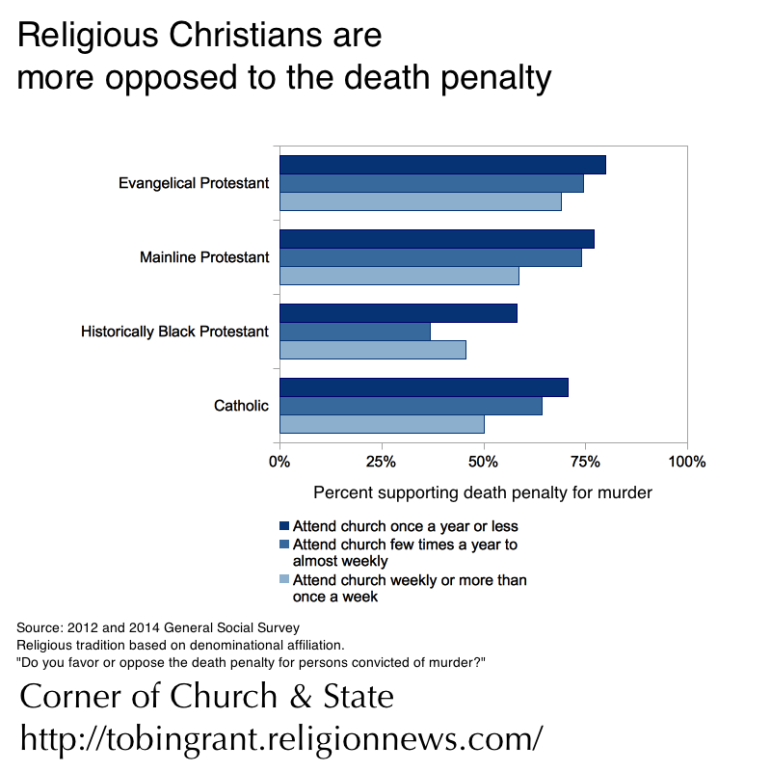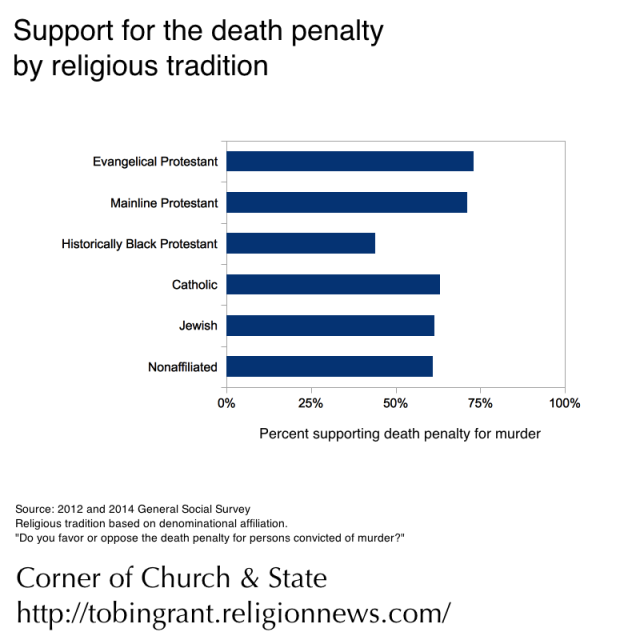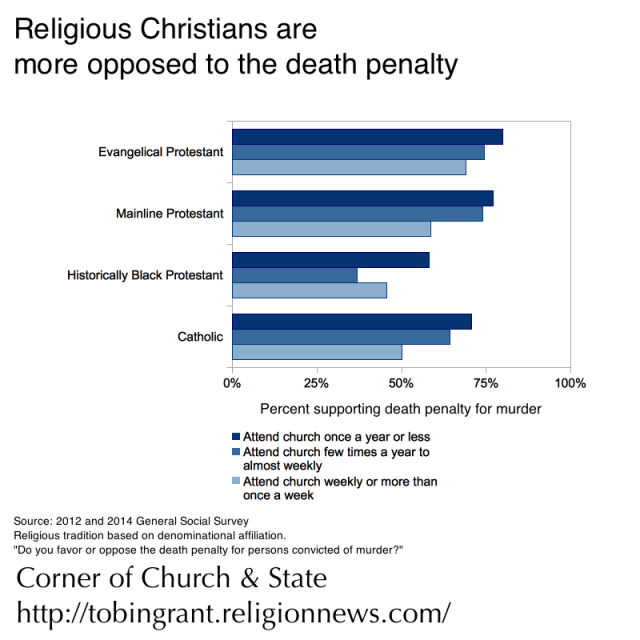The National Association of Evangelicals announced a softening of its position on capital punishment. The change reflects a shift in opinion among evangelicals—particularly evangelicals who are most active in their faith.
For over 40 years, the official position of the NAE has been supportive of the death penalty. The new resolution does not reverse its position; it does acknowledge a diversity of positions within evangelicals.
The NAE is the largest evangelical coalition in the country, representing 40 denominations and 45,000 congregations. NAE resolutions are not binding, but they do represent the views of evangelical leaders and their organizations. According to Washington Post, some NAE members would not support a reversal, but there was agreement that a statement recognizing differences among evangelicals.
Shane Claiborne is an evangelical and death penalty activist. He welcomed the NAE decision.
“Here’s why the NAE’s announcement is a big deal.,” Claiborne said. “In addition to being distinguished by a personal relationship with Jesus and a high view of Scripture, evangelicals have provided an unwavering political base and a solid theological backbone for the death penalty in America — until now.”
Thank God: Evangelicals shrink back from support of death penalty (COMMENTARY)
Evangelicals are among the most supportive of the death penalty. Nearly three-quarters of evangelicals support the death penalty for murder. However, this level of support is not dramatically higher than what is found among other faith groups. Views of capital punishment is split more along racial lines, not religion.Mainline Protestants (whose denominations are more likely to oppose capital punishment) are not far behind. A majority of Catholics, Jews, and those with no religion support the death penalty. Those in historically black churches, however, are opposed.
But there is an interesting twist in the data.
In other areas, those who are most active in their faith are the most distinct from the so-called “nones.” But on the death penalty, the less religious a person is, the more likely they are to support capital punishment.
Among evangelicals, 70 percent of those who say they attend church weekly or more often support the death penalty. Those who attend occasionally are more opposed, with 75 percent. Evangelicals who rarely darken a church door are the most supportive, with eight out of ten backing the death penalty. The difference between the more religious and the less religious is more stark in other faith traditions.
The results may explain the split between denominations and their members. Leaders (who are the most of the most religious) would be the most likely to oppose the death penalty; members are less likely to agree unless they are also highly committed.
Don’t miss any more posts from the Corner of Church & State. Click the red subscribe button in the right hand column. Follow @TobinGrant on Twitter and on the Corner of Church & State Facebook page.







